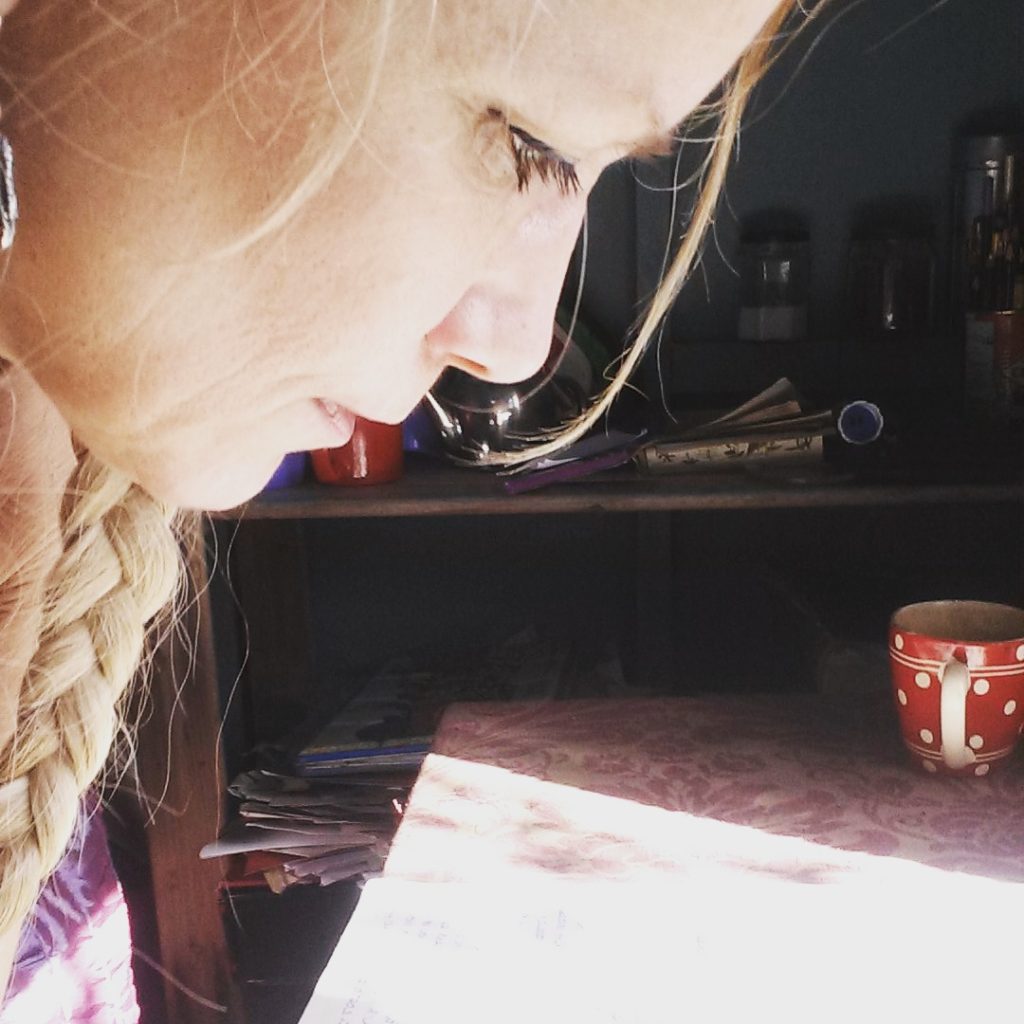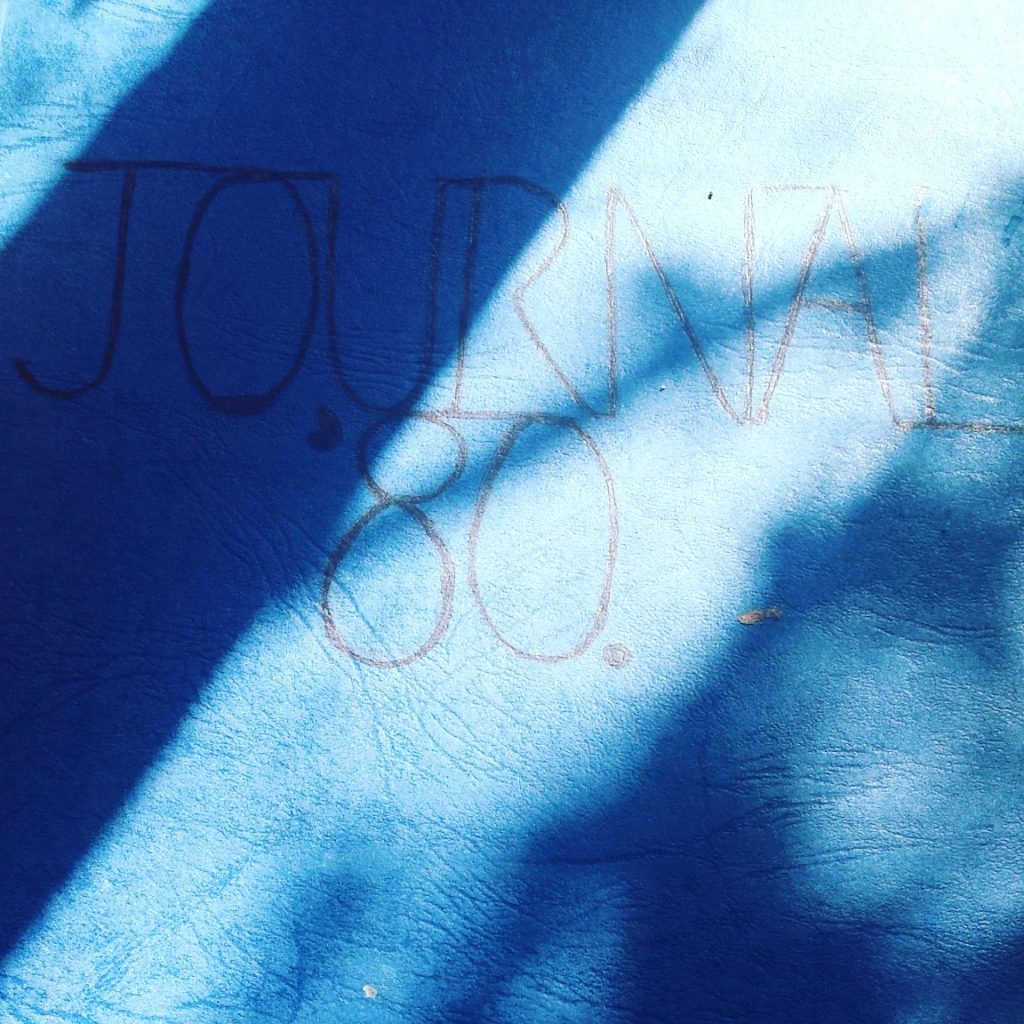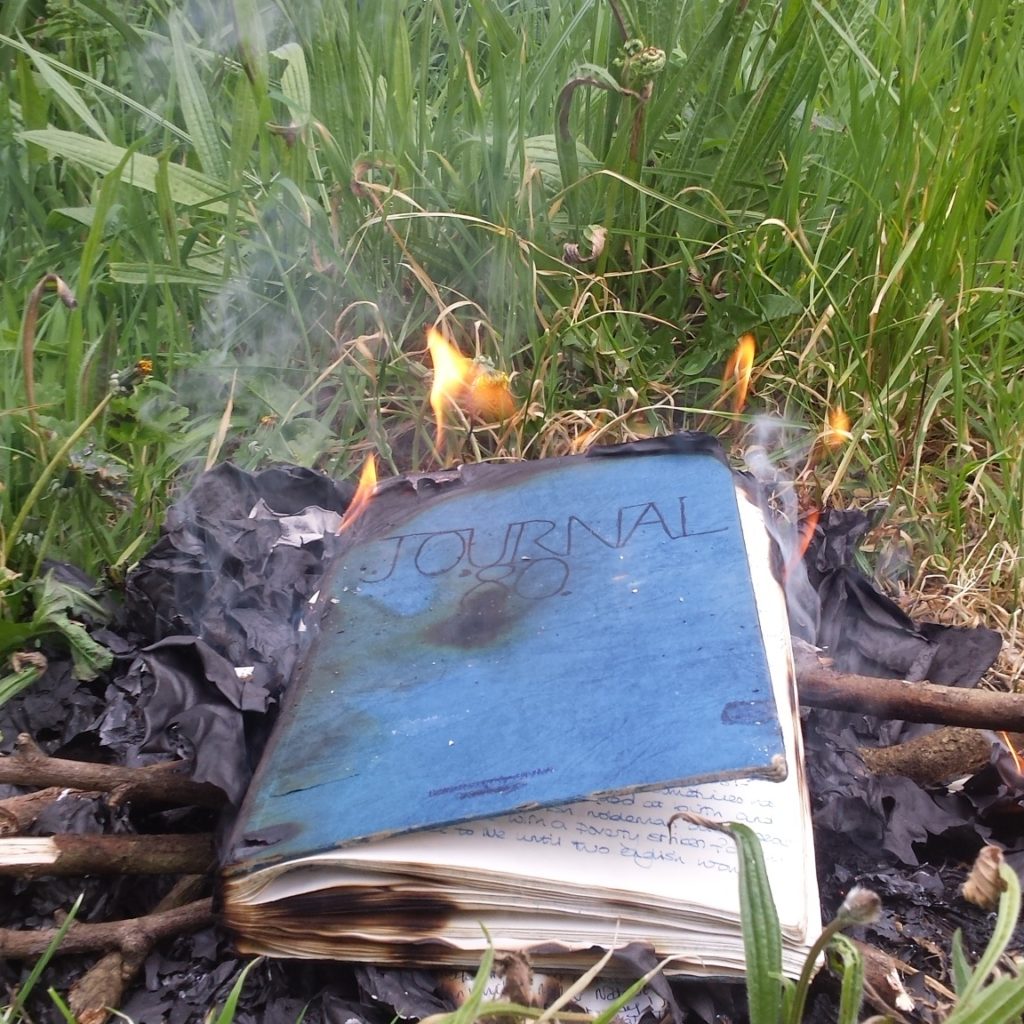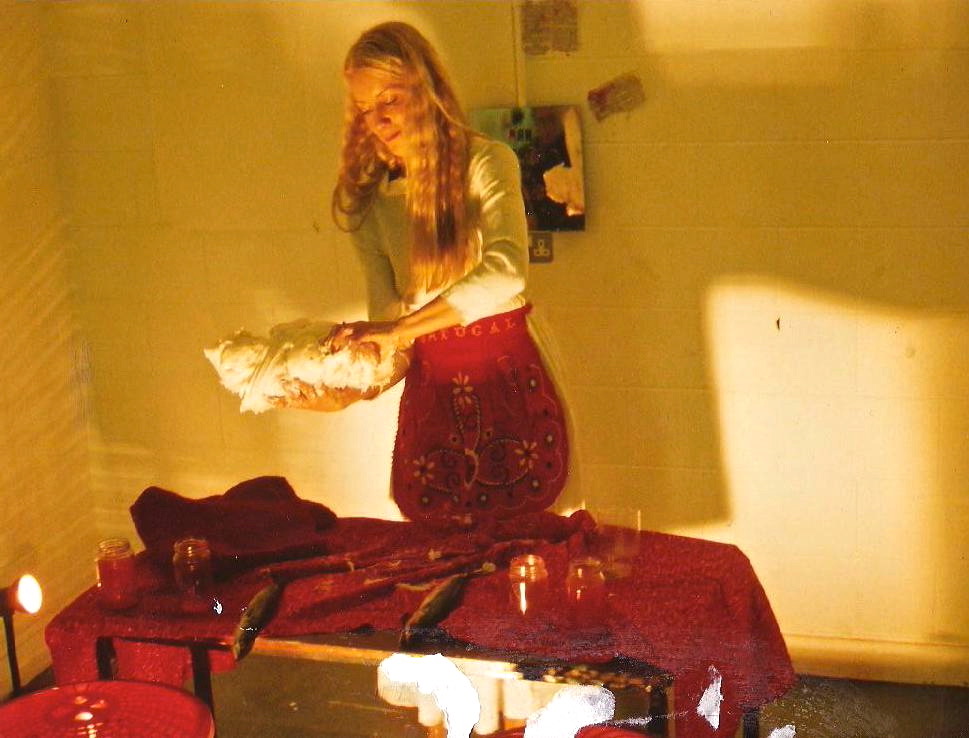The truth is we become the stories we tell about ourselves
The Theatre of the Self is a conceptual performance and writing project about rising from the ashes, and rebuilding life stories for good mental health.
Its starting point was a 30 day performance in 2017 of reading, editing and burning 30 years of diaries. It reveals a personal journey through life stories and trauma that encourages us to re-write ourselves.



Performance Score (2017)
30 diaries (1977-2007)
30 days (not consecutive)
Each day read a diary, save something, burn the rest
Construction – not destruction
This performance score became a starting point for a research project about women, autobiography, our stories – and surviving motherhood. The project is not about the destruction of archives but keeping what we want and living ourselves into our best stories.
In 2017 I took a month out to ritually re-read 30 diaries (1977-2010) as a conceptual performance project. I kept some and burned the rest. The Theatre of the self (2017) is many things; a research project about women, autobiography and telling stories; a practical project that made me read and get rid of over 30 years of diaries; a personal and cathartic project that enabled me to deal with past trauma; a journey into rethinking how we might use a kind of historical revisionism to see our pasts differently with ensuing benefits for good mental health.
For over 30 years I had used my diary as a confidante with whom I could converse for mental health. It was not the kind of diary that one leaves behind. The process of reading, keeping and burning was not about destruction – it is a reflective and dramatic creative act.
The ensuing research from 2017-2020 explored how the project might be was useful for good mental health and how the project could be shared with wider audiences. In early 2021 some of the documentation, writing and research was published in an A6 book with 4 accompanying mental health diaries.
The Theatre of the Self by Delpha Hudson (2017)
We tell ourselves stories about ourselves, flexibly and fluidly telling our own truths. Would confronting ‘truth’ in diaries, change who I am or who I think I am? The process of the performance threw up other fictions in re-performing identity, and its constant re-creation. And destruction. Of course burning books is a seemingly political and perhaps overly dramatic act. It made the project an emotive and provocative way of thinking about truth, writing and objects, and ‘what to retain, what to dump, how to hold onto what memory insists on relinquishing, how to deal with change.’ (John Berger)
The project is about creation of self not destruction. It explores the ways in which women have infinite potential to fluidly re-edit and re-write the narrative structures that contain and restrict them. Editing the self in this way, selecting material and memories, also has the potential to heal and deal with past trauma and mental illness.
Diaries are defined as writing that is in the first person, written at that moment, sequential, with no prescience as to the future. It is ‘a social practice which actively constitutes reality’, [1] yet the diary can never be a completely ‘immediated transcription of reality since it is constructed…and is a highly coded form of signification’. .[2]. In de-constructing and de-coding my own seemingly truthful, un-expurgated versions of myself, I am choosing to construct new realities, which are no less real, nor less ‘my self’.
The process of reading the diaries and destroying them became not just a way of dealing with stuff (what to keep, what to destroy) and my relationship with past traumas (yes it was a cathartic process) but of intentionally revealing cultural structures that confine and delimit women’s visibility and experience.
Drawing our attention to both mourning and melancholia as generative opportunities for remembrance and new departures, it was truly sad watching the diaries slowly turning to ash (after I had kept bits I wanted) yet also something strangely triumphant. The destruction of my diaries un-tethered me, from a need to see my history in sequential order, and gave me the potential to liberate myself from old ties of guilt, and as they say “move on”.
It was a cathartic process and a performance of ‘unmaking,’ that held possibilities for ‘making’ -and multiplying possibilities for the self and complex female identities. It is part of an artistic endeavour to find visual and conceptual means to represent the ‘unfinalizable process by which a person becomes for the first time that which [s]he is’ [3] that has the potential to change and transform our lives, our sense of self and potentially deal with trauma and mental illness.
[1] Hassan, J., 1993, p.34 [2] Hassan, J., 1993, p.34 [3] Della Pollock 1999, quoted in Battersby’s article ‘Women a cultural review’Have a look at all the project resources on the project bibliography
Read more writing and research from 2017
Theatre of the Self: A son’s (re)view by Phoenix Hudson, 2021
How revisiting our past selves allows us to reconstruct our identities
In her project Theatre of the Self, Cornish-based artist Delpha Hudson illuminates how the activity of diary keeping allows us to construct and reconstruct our identities in a continual process throughout our lifetimes. Her strikingly personal autobiographical account, using 30 short diary entries over 30 years, showcases themes of writing the self, women and care in honest and evocative ways. Contributing to our understanding of the theory of self and mental health from a feminist and narrative perspective.
Throughout the Theatre of the Self the formal performed action of reading, editing and burning diaries is documented and interpolated with theoretical material on themes of selfhood, identity and re-construction. Through an additional series of small mental health diaries we are invited to explore writing the best versions of our selves; our cupboard skeletons; how we perceive ourselves, and ways to rekindle connection to our bodies, with the aim of understanding new possibilities for reconstructing our identities through the medium of diary keeping.
_____
Diaries tend to be the most intimate objects people possess. Since they are typically meant only for the eyes of the author, diaries contain all the elements that make up human experience without holding back. Each is a unique and personal process – often a work of art itself. This series of small books reference this process and contain unique, personal and intimate elements that make up human experience. These are examples of the elements that help provide some of the most striking insights into our lives.
Diaries can be a way for people to take their space in the world and prove to themselves that they exist. They can work on a deeply personal or social scale; diaries can be solely for the self or as a process of understanding care within family and friend social spheres.
The role of the diary is an invaluable sandbox for learning the craft of writing but for also crystalizing our own passions and priorities, from which all creative lives are built. Writing a diary invokes naturalness and spontaneity, as we tend to note what interests us genuinely or what we feel about most strongly in the present moment. The nature of a ‘no rules’ approach to writing is key to it becoming a medium that never inhibits but expands our lives. As a meditative and freeing practice, it allows one to escape the fear of being wrong. Each page materializes as truth when we write it, and we may realise that was how we deeply and perhaps inconsequentially felt at that moment in time. In this way the purpose of diary writing is to take chances, acknowledge and reaffirm our values, and seek a way forward.
37-year-old Virginia Woolf speaks to the value of writing diaries because they grant us unfiltered access to the:
“Rough gems of our own minds, ordinarily dismissed by the self-censorship of “formal” writing.”[i]
The unpredictability of little details found in diary entries can often be vital foundational bricks, building physical bridges between our present self and future selves. Writing diaries has the potential to provide personal histories to reflect upon with the additional opportunity to reinterpret these histories. These retrospective possibilities of writing also suggest that it is never too late to start. Something I left behind myself as a child but now intend to pursue in greater scope.
Highlighting the role of diaries as a discipline for self-evaluation and analysis, Theatre of the Self builds further foundations on the bridge between the past and present versions of our selves. It opens up possibilities for reconstructing and solidifying our identities in new ways, based on reconciling our relationship between our past and present selves.
_____
When Delpha, my mother, asked me for a piece of writing about her project I was thrilled, not only because I think her piece carries a beautiful message through turbulent times, but because I have witnessed the development of this project over the past few years. From its performance art beginnings (diary burning), to its (retrospective) diary entry beginnings, this small series of books solidifies a project that has unfolded through some of the most prominent years of my life and through a myriad of mediums and forms. It is in this process that I have emphatically and bi-laterally learnt what it means to be a mother, an artist, an author and in some ways a person. I now understand why I was forcibly dragged around art galleries for the majority of my formative years.
Delpha blends elements from the personal and anecdotal into an evocative feminist account of narrative theory, the diary elements reveal the human condition of courage and suffering in the face of it all. Something that in part we all go through at different stages of our lives.
Andre Gide explains that:
“A diary is useful during conscious, intentional, and painful spiritual evolutions. When you want to know where you stand… An intimate diary is interesting especially when it records the awakening of ideas; or the awakening of the senses at puberty; or else when you feel yourself to be dying.”[ii]
Personal accounts present our vulnerability and teach us all valuable insights about ourselves. Theatre of the Self suggests new ways to take care of ourselves, and from a personal standpoint, my reading of my mother’s personal writing provides insights that might help us all to connect and relate to our loved ones better.
One of the little mental health diaries is called the Little Black Book of Catharsis, in this book; Delpha invites us to follow in her journey of catharsis through the burning of diaries. This book creates the possibility of writing with no shame, and no social external influences by using (if we want) the playfully attached match on the spine of the book that signifies the ‘no rules’ suggestion to approaching this diary. It says, no matter what we write, it will turn to ash. Shamelessly exploring the skeletons in our cupboards, so to speak, allows these prospective versions of ourselves to become graspable, granting us the capacity to change how they affect us and how we view them.
The other mental health diaries accompanied are designed for discovery and reconfiguration of the different versions of our selves. The Golden Notebook shining polarizingly brighter than all. Within this book we are urged to undertake the adventure of ‘becoming’ – that is, discovering the best version of our selves. We are invited to claim credit for the best things we do (no matter the size), our dreams, our treasured objects and favourite memories; helping us affirm ourselves, and our values. We are reminded in each of the mental health diaries that our identities are made up of narrative interpretations, and different versions of ourselves can be blurred by archetypes projected onto us by the society we live in. However, this project illuminates our collective capacity when approaching this nature of our lives, enabling us to stand back and ponder the question of which self we choose to inhabit through our stories.
Upon reading this series of small books, I realized that we must all sometimes feel like Penelope from Homer’s Odyssey – spending each day weaving tapestries from our own bank of stories, myths, fears, suppositions, dreads, and personal truths. Only to awaken the next morning and unweave them all, changing, fixing, improving, and purposefully dismantling. This represents the Artist, the weaver, the myth-maker, the narrative author, A.K.A. every human being that acknowledges that their life is on a continually evolving path, accumulating experience but always starting over. Eager to learn, adapt, improve and ultimately reconstruct. The overarching aim of the Theatre of the Self is that in becoming myth-makers and the tapestry weavers, we have the capacity to shape our lives as pervasively as we please.
____
Just as many performance artists subtly change each performance or re-performance of live work, revisiting diaries becomes a way of re-performing moments or stages (which can be interpreted as the stage to act on, or a period of time!) in our lives. The process of re-reading is fundamentally and phenomenologically different each time. As when we revisit different stages of our lives, at different times, we interpret them in new ways. This leads to accumulative understandings of parts of our lives that can be set against a temporal background of adaptation that can adjust old memories or produce new ones. This art book and project shows the potential for this to be a cognitive and learnt process. Showcasing how we can choose to reconstruct ourselves and our identities through the activity of diary keeping, writing and re-evaluation.
Reconstruction and re-reading is, of course, very important for our mental health and sense of self yet it could also be seen as very important for family in understanding the background conditions from which family members emerged. In understanding our loved ones better, the project shows the potential to share new understanding and becomes multi-functional and relational.
One of the themes of the book is to stress the way that society devalues motherhood and care, the artist therefore suggests that there should be a proper and dignified value of care. Within the scope of this project she doesn’t explicitly state how we should go about this; however my interpretation is that this could first begin through deeper understanding and empathy between family members and close friends. The personal nature of writing and communicating has the potential to be a springboard or signifier for empathy. I propose that it is in this everyday understanding of the small details that make up our lives that we can begin again to truly learn to care for others.
Identifying the roles and stories we play in each other’s lives, told through coherent storytelling, should lead to more concrete understandings between family members. In divulging our narratives to each other it may be possible to socially orchestrate the value of care through deeper understanding, in turn creating more meaningful connections between generations and loved ones.
_____
Theatre of the Self is an inter-disciplinary artwork, part autobiography, part feminist and narrative theory, part call to action. It showcases developmental processes of interpretation and understanding of the self in diary writing, and that in understanding our narratives we become better equipped with the right tools to fully realize our everyday ambitions.
It explores the continual flux of self or ‘subject in process’, [iii]. Exploring the notion of self is one of the most fascinating pursuits that we can all undertake throughout the course of our lives. As it is ever changing, grounding, emotional, personal, and significant for good mental health as well as our relationship to others. It is a task that can never be completed (whilst we are still alive and kicking) as we are all constantly changing, editing and re-writing our life scripts. Understanding our personal narratives as incomplete should lead to a more enthusiastic outlook on all that’s still to come.
Yet in analysing and reconstructing our past identities, we complete them in that moment (the present moment). In the way that our stories feel complete up to the present moment, fixed as history. It is in this historic sense that we are then able to retrospectively grasp our histories. However, it is in making our own histories tangible objects that enables us to interpret and move forward. Redefining ourselves based on past experiences, motivations and passions. Being aware that this subjective understanding of our personal narrative ‘now’ could change is a positive step towards the freedom to reinterpret ourselves again and again. This is precisely the:
‘unfinalizable process by which a person becomes for the first time that which (s)he is’[iv], that Delpha uses as a recurrent theme in the art work and book.
I would recommend The Theatre of the Self to anyone who has or wants to take a step back during a turbulent year, to revisit the parts of themselves that are too easily forgotten. This series of small books triumphantly invite us to weave or reweave the threads of our lives with new capacities for personal agency, and sense of self. It has provoked me into being a weaver of my life – or as my mother says ‘Take control and be your own author!’
[i] Journal Tome 2, Virginia Woolf.
[ii] The Journals of Andre Gidé, Andre Gidé.
[iii] Theatre of the Self, P. 20.
Look inside Theatre of the Self book
Archive Publishing events:
The Virtual Book Launch took place online on Thursday 4th March 2021 with artist & author Delpha Hudson, host Helen Battelley and invited speakers Dr Polly Hudson, Dr Davina Kirkpatrick & Rene Crouch. View the event online.
The books were also part of an online exhibition & collection of artist’s books about mental health: ‘It’s A New Day’ is hosted by Bower Ashton Library in collaboration with Arnolfini, Bristol, Tues 2nd March – Sun 18th April 2021 & included in the online BABE book fair at the Arnolfini 17-18 April 2021, with my film about the making of the book available online from Friday 16th April. More on my artist’s news
Other Instagram live chats took place during April & May 2021 with Helen Sargeant of Maternal Art & Carrieanne Vivianette of CVIV arts – videos can be accessed on Instagram or on Conversations on Resilience: with Delpha Hudson
Read more about Delpha’s performance art projects



